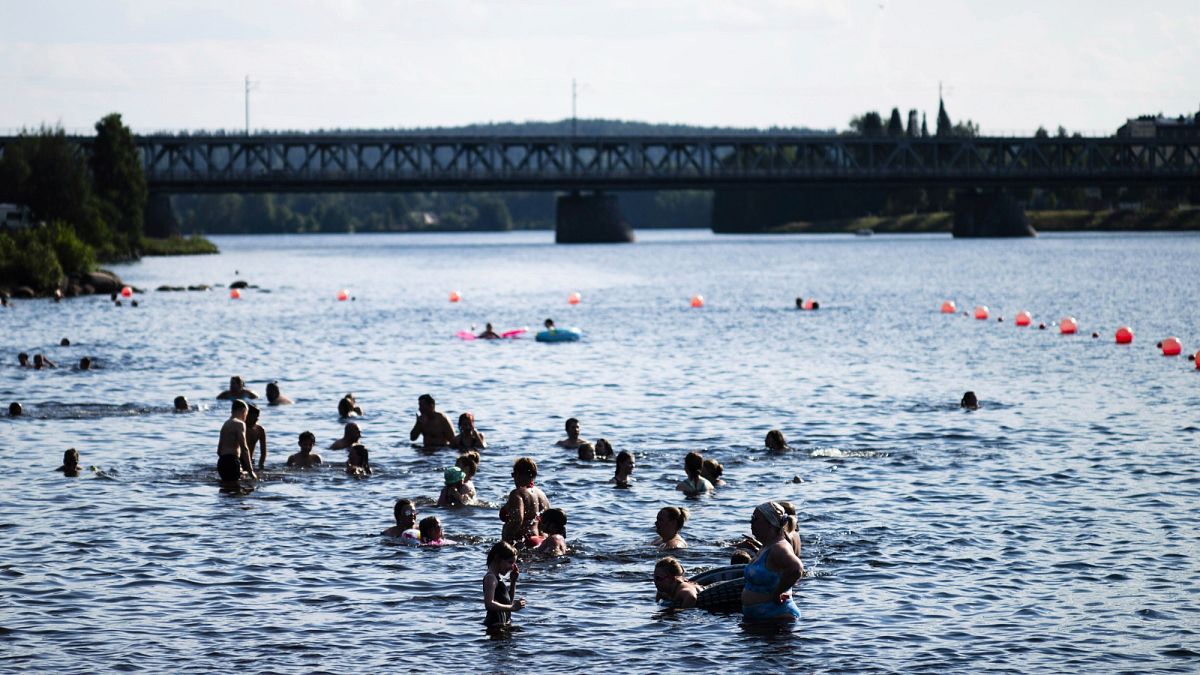Human-caused climate change made a two-week-long heatwave in Norway, Sweden and Finland around 2°C hotter and at least 10 times more likely, a rapid analysis by World Weather Attribution has found.
Extreme heat gripped the cold Nordic countries from mid-July, with temperatures above 30°C. Finland experienced 22 consecutive days where temperatures were above 30°C, its longest heatwave on record. In the Norwegian part of the Arctic Circle, a weather station recorded temperatures above 30°C on 13 days during the month of July.
The study from World Weather Attribution highlights how heatwaves intensified by climate change are disrupting healthcare and warns that similar events will become five times more frequent by 2100 unless there is a rapid shift away from fossil fuels.
“Even comparably cold Scandinavian countries are facing dangerous heatwaves today with 1.3°C of warming,” says study author Friederike Otto, Professor in Climate Science at the Centre for Environmental Policy, Imperial College London.
“This event should be taken as another reminder that no country is safe from climate change.”
Ten times more likely and 2°C hotter
The study from World Weather Attribution reveals that climate change made the mid-July heatwave in Norway, Sweden and Finland at least 10 times more likely than it would have been in a world without 1.3°C of global warming.
Researchers also found that human-caused climate change made the event in Norway, Sweden and Finland around 2°C hotter.
In a 1.3°C cooler world, they say, a similar two-week period of persistent high temperatures would be extremely rare.
But today, with current global warming, they are now expected about every 50 years. At 2.6°C of warming, which is expected this century, similar events will be five times as likely and a further 1.4°C hotter than today.
The study found that the likelihood of a prolonged period of heat like this has almost doubled since 2018, when the region last experienced such an intense heatwave.
Dr Clair Barnes, study author and researcher at the Centre for Environmental Policy, Imperial College London, says the “relentless” Nordic heatwave is “highly concerning”.
“Climate change is fundamentally reshaping the world we live in. Cold-climate countries like Norway, Sweden and Finland are now experiencing unfamiliar levels of heat, as recently seen in strained health systems and sightings of reindeer seeking shade in urban areas,” she adds.
The stark threat of climate change in cold countries
The period of persistent heat across the three countries brought overcrowded and overheated hospitals, wildfires, toxic algal blooms and a surge in drownings.
While many enjoyed the summer warmth, the prolonged high temperatures meant demanding working conditions, sleepless nights and health risks. Researchers warn that this “silent killer” may have caused hundreds of heat-related deaths.
When Sweden was hit by the 2018 heatwave, about 750 excess deaths were estimated over a five-week period from early July.
“This heatwave was a stark reminder of the threat of climate change in cold-climate countries that aren’t normally considered vulnerable,” says study author Maja Vahlberg, technical advisor at the Red Cross Red Crescent Climate Centre, and climate consultant at the Swedish Red Cross.
“Our infrastructure was not built to withstand these extreme temperatures and our ageing population is increasingly susceptible to dangerous heat.
“We’ve seen some progress in adaptation and preparedness, particularly since 2018, when we experienced our last big heatwave. But we still need to do more to ensure our cold-adapted infrastructure and systems are also ready for high temperatures.”
It also pushed reindeer, which usually roam the forests, into towns as they sought shade from the high temperatures. Herders warned that their animals were on the verge of dying in the heat. Alongside threatening ecosystems, climate change is threatening the livelihoods of Indigenous Sámi communities, who have herded reindeer in the region for more than 1,000 years.

